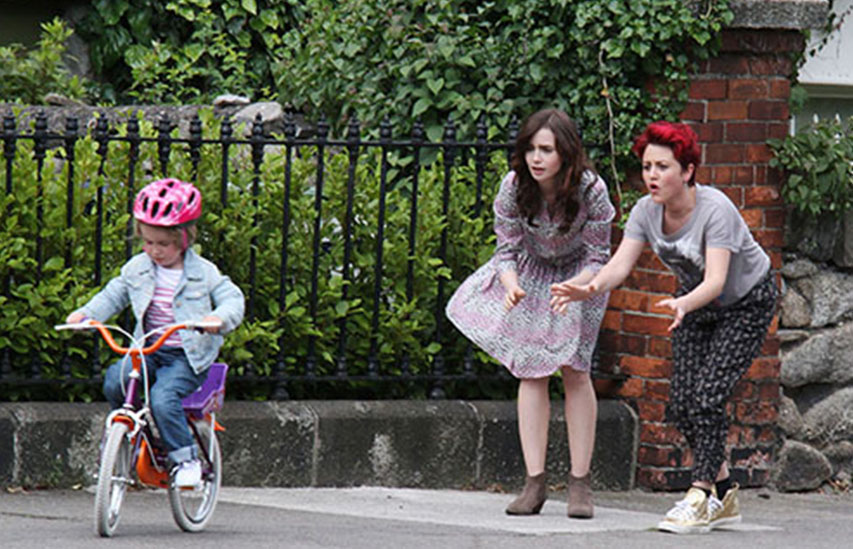Critics rating: 1.5 Stars
Cast: Lily Collins, Sam Claflin.
Direction: Christian Ditter.
Produced: Robert Kulzer, Simon Brooks.
Written: Juliette Towhidi.
Genre: Comedy.
Duration: 102 Mins
Cecilia Ahern’s Where Rainbows End has to be better than its cinematic adaptation. Love Rosie is contrived, silly and a massive test of patience for those who have seen better love stories (which would be most of the audience).
Rosie (Lily Collins) and Alex (Sam Claflin) are BFFs since their days in kindergarten. They grow into teenagers endowed with movie star looks, but Rosie continues to rib Alex about a gorgeous blonde classmate, Bethany (Suki Waterhouse) being out of his league (really, Rosie?). But as it turns out, Bethany is in his league and Rosie does not get thrown a bone, though she does get knocked up by Greg (Christian Cooke). After that, there are a lot of ‘will they-won’t they’ twists (oh, they will, all right) which could put the Ross and Rachel track on F.R.I.E.N.D.S. to shame.

The proceedings may be easier to understand for book fans but for those who have not read the source material will note that the film is unable to stand on its own legs. Characters are introduced abruptly and not developed enough for you to care about them. Rosie’s father is a low-level employee at a hotel and their relationship barely gets a moment in the scene where he is slipping into his uniform. Our heroine’s friendship with Ruby (Jaime Winstone, who looks like an Amy Poehler and Lana Wachowski love child) from the chemist store develops without any build-up.
Rosie’s conservative Roman Catholic parents seem surprisingly supportive of her teenage pregnancy. Considering that they are such good friends, a lot of Rosie and Alex’s communications happen over Instant Messages or texts. They never seem to call each other during key moments of crisis in their lives. It is a bond that never really shines through. The misunderstandings and the pairing seem to happen only because the story demands it.

Despite the fact that the story spans 12 years, the two behave as if they were still a part of a college fraternity. Even their messages do not reflect the depth their experiences ought to have given them. Also, they never seem to have aged in these 12 years and we know what a difference a little more than a decade can make from Boyhood.
Overall, it becomes a tiresome saga of love despite the charming Collins-Claflin coupling, where the script demands that characters make the same relationship mistakes over and over again before they find each other. For a better look at love spanning years, revisit the classic When Harry Met Sally. This one does not make the cut.








-173X130.jpg)
-173X130.jpg)

-173X130.jpg)
-173X130.jpg)
-173X130.jpg)
-173X130.jpg)
-173X130.jpg)